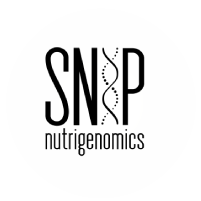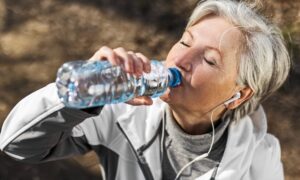You may not know it, but your environment is full of toxins.
From heavy metals and pesticides to cigarette smoke and plastics, these substances are everywhere and can have lasting impacts on your health.
That’s why it’s important to take steps to limit your exposure to these chemicals whenever possible.
Minimize Exposure to Heavy Metals
Found in everything from contaminated water sources to conventional seafood, cadmium, mercury, lead, and arsenic are heavy metals pervasive in our environment.
The good news is that there are steps you can take to minimize your exposure.
Start by drinking filtered water instead of tap water whenever possible; many filters are effective at removing heavy metals from the water supply.
Additionally, avoid eating any type of fish or seafood more than once a week; most fish contain some level of toxins, so limiting consumption is key.
Consult EWG’s guide to seafood to learn about which choices are safest.
Avoid Pesticides
Another way you can limit your toxin exposure is by avoiding foods with high levels of pesticides.
To do this, try buying organic or biodynamic produce whenever possible. These farming methods don’t use synthetic fertilizers or pesticides like conventional farming does.
Additionally, wash all fruits and vegetables thoroughly before eating them. Even if they aren’t grown organically, doing this can help reduce the amount of pesticide residue on them.
Avoid using pesticides in your own home and garden. Natural methods of pest control are safer for you, as well as for pets and wildlife.
Here are the foods with the highest pesticide loads (the “Dirty Dozen™”), and the foods considered safest (the “Clean Fifteen™”) by EWG.
Limit Cigarette Smoke Exposure
If you smoke or have family members or friends who do, it’s important to limit your exposure to cigarette smoke as much as possible since it contains thousands of dangerous chemicals that can increase the risk for cancer and other health problems over time.
Try asking smokers to step outside when they want to light up or offer them gum or nicotine patches as an alternative way for them to get their nicotine fix without inhaling the harmful chemicals in cigarettes.
Use Clean Cosmetics
Make sure you always opt for clean cosmetics whenever possible.
Many conventional makeup products contain toxic ingredients like parabens, phthalates, and formaldehyde which have been linked with hormone disruption and other health issues over time.
Stick with organic products and those with ingredients you can pronounce easily. These will typically be free from hard-to-pronounce synthetic chemicals that could potentially harm your health in the long run.
Know Your DNA
Are you genetically vulnerable to chemicals?
Can you use extra detoxification support?
Get to know your DNA with SNiP’s actionable DNA reports.
Your heavy-hitting, actionable genes like EPHX1 or GSTP1 directly affect your ability to detoxify from life’s exposures inside and out. Look deeper at your genes in the detox panel, or methylation panel to see your unique road map to detoxification ability.
CODE complex, your DNA-personalized supplement, provides personalized nutritional support, to the milligram, to further optimize your gene expression and detoxification pathways.
In a Nutshell
Limiting your toxin exposure should be a priority if you care about your health—and fortunately, there are plenty of ways you can do this. Start by minimizing exposure to heavy metals like lead and arsenic whenever possible. Avoid eating too much conventional seafood since it contains traces of toxins. Limit cigarette smoke exposure by asking people around you not to light up indoors. Opt for clean cosmetics wherever possible so that you don’t inadvertently expose yourself to toxic ingredients that could cause long-term problems down the line. Finally, discover more about your chemical vulnerabilities and detoxification capacities through a SNiP DNA test. Doing all these things will go a long way toward keeping yourself safe from environmental toxins.


